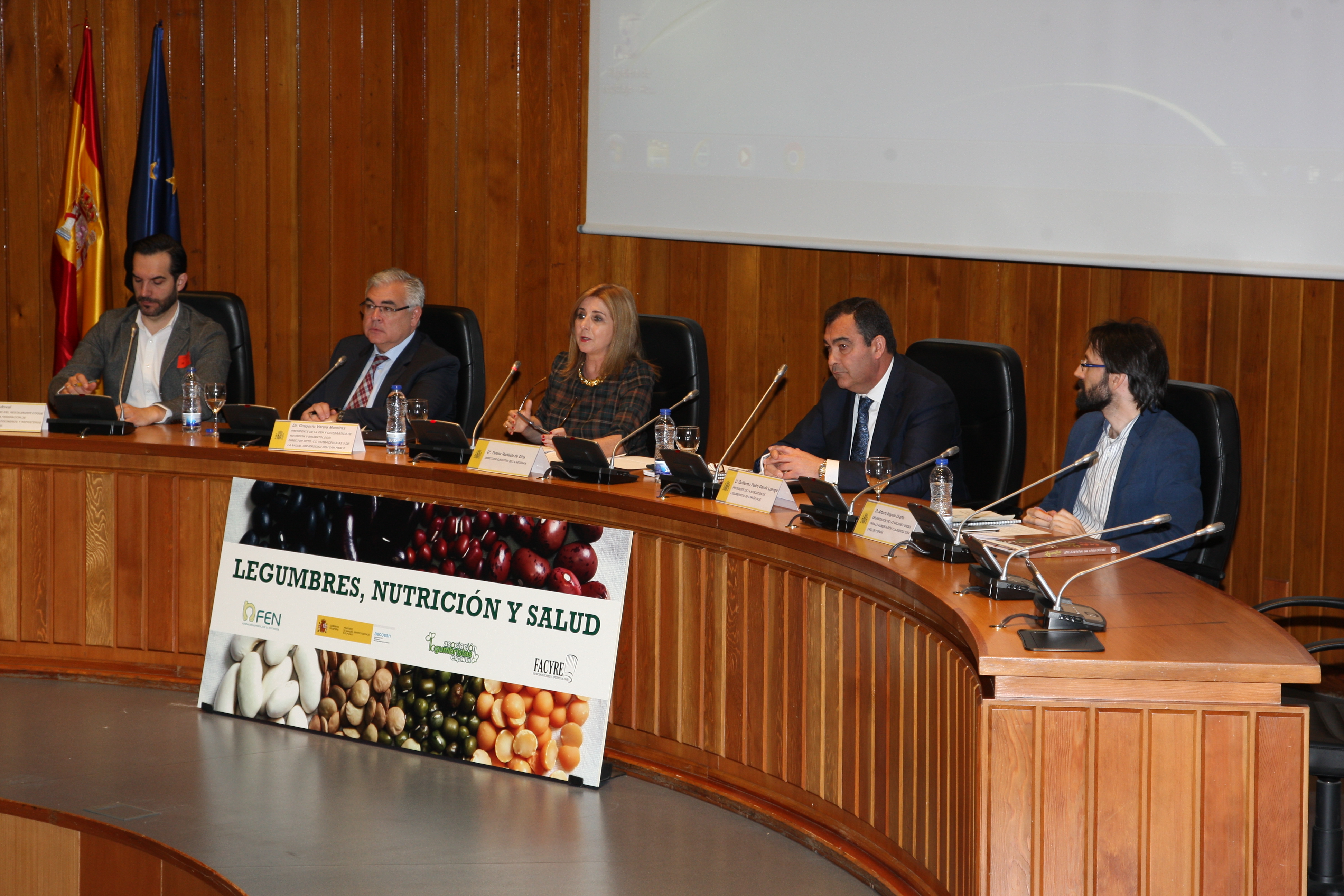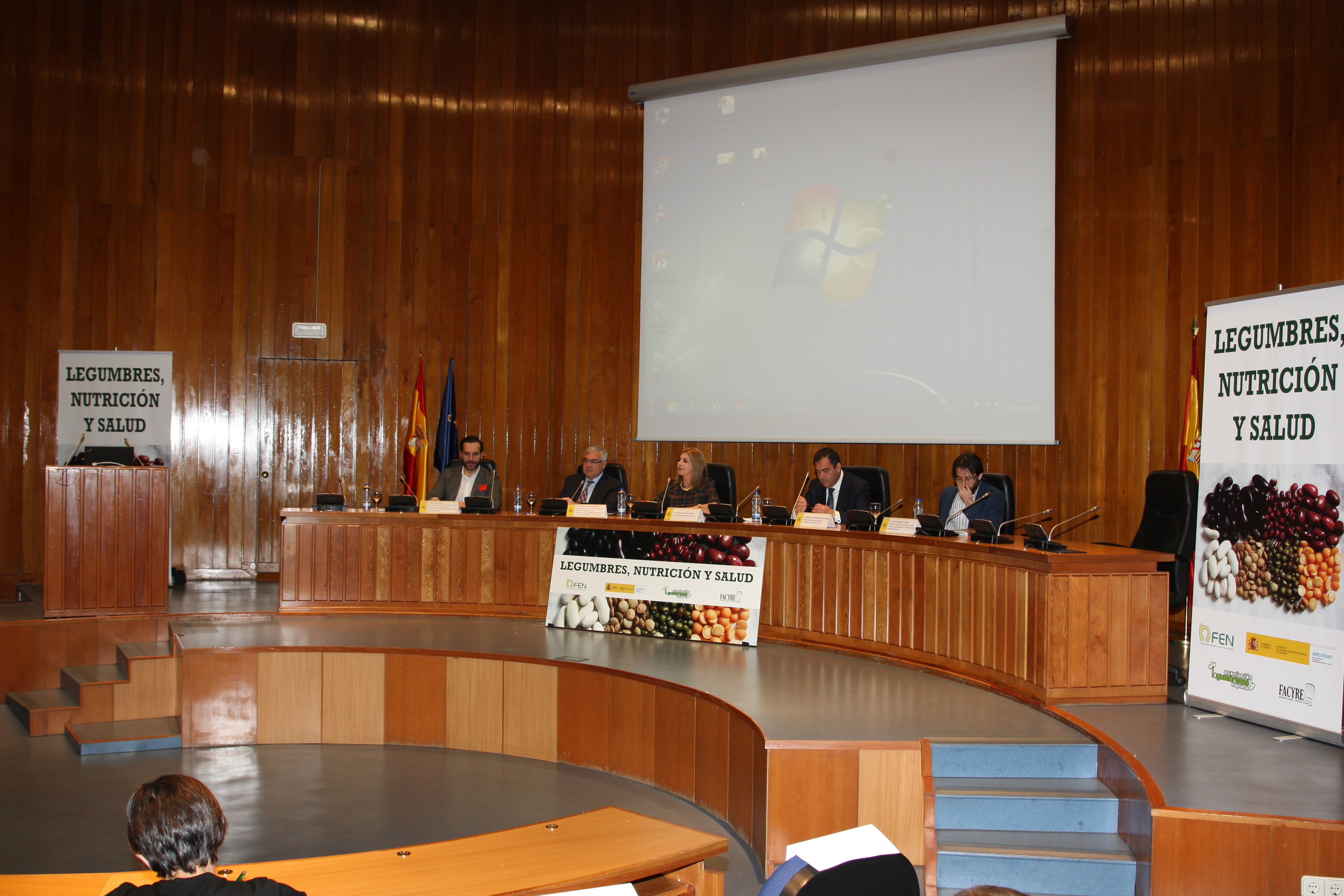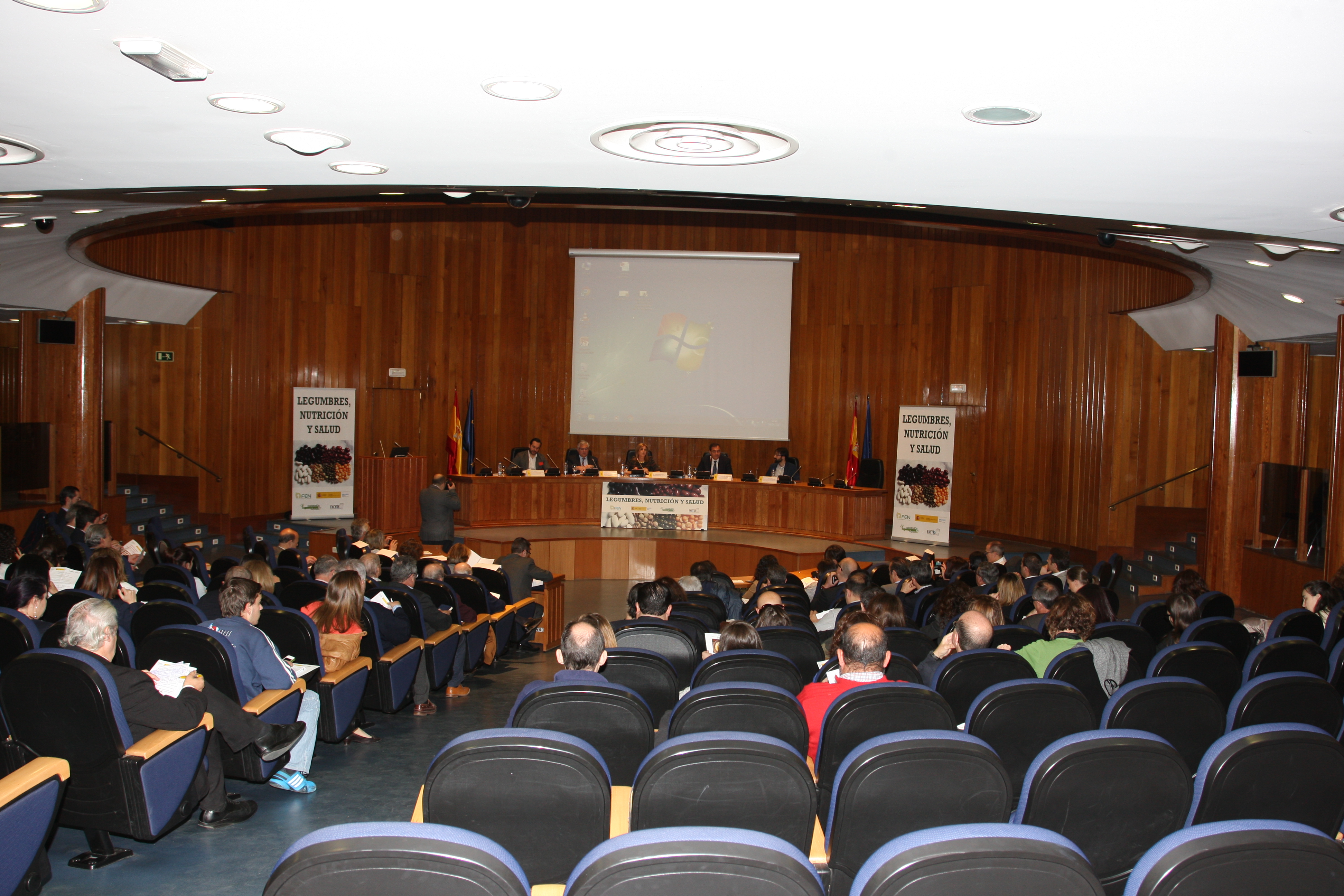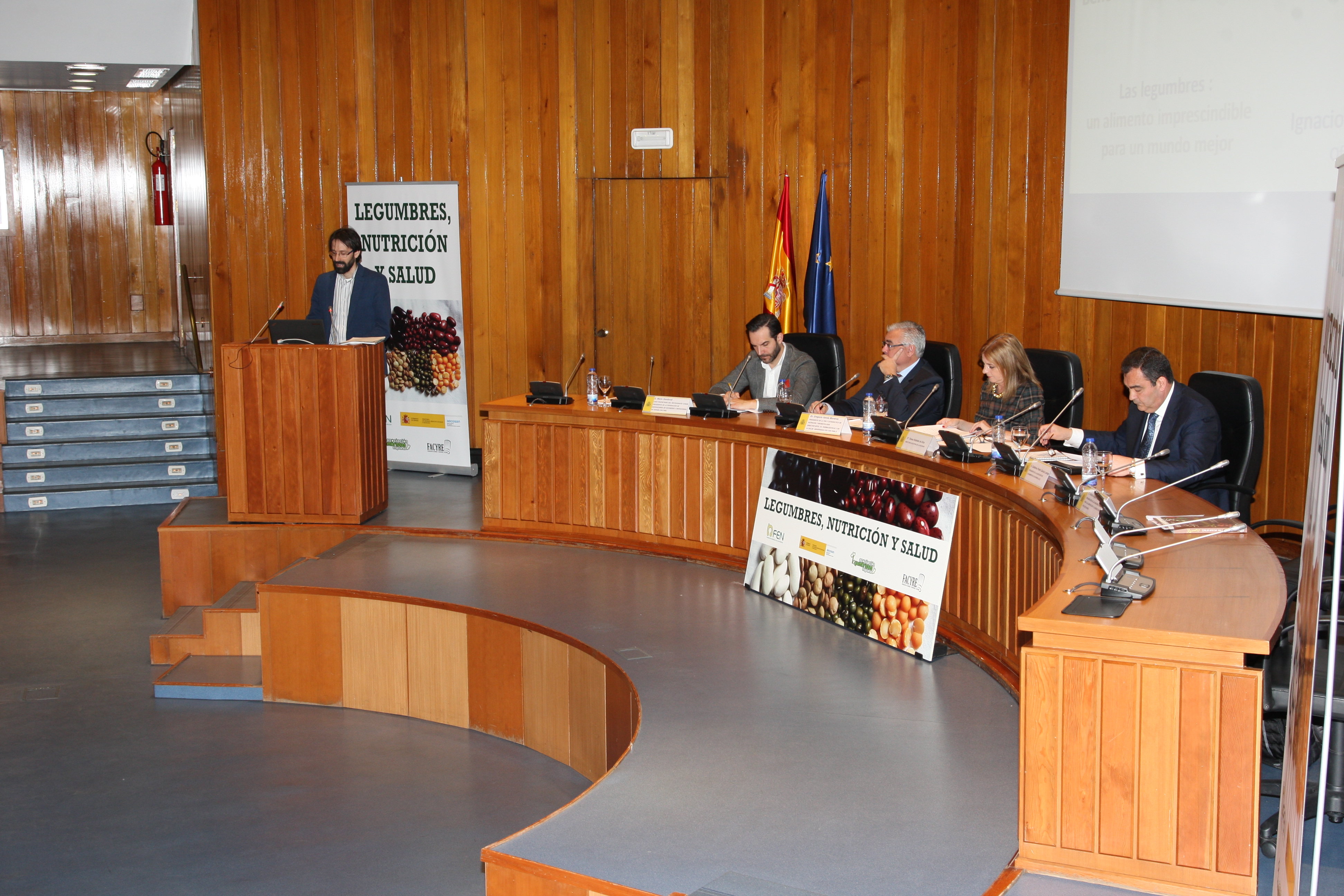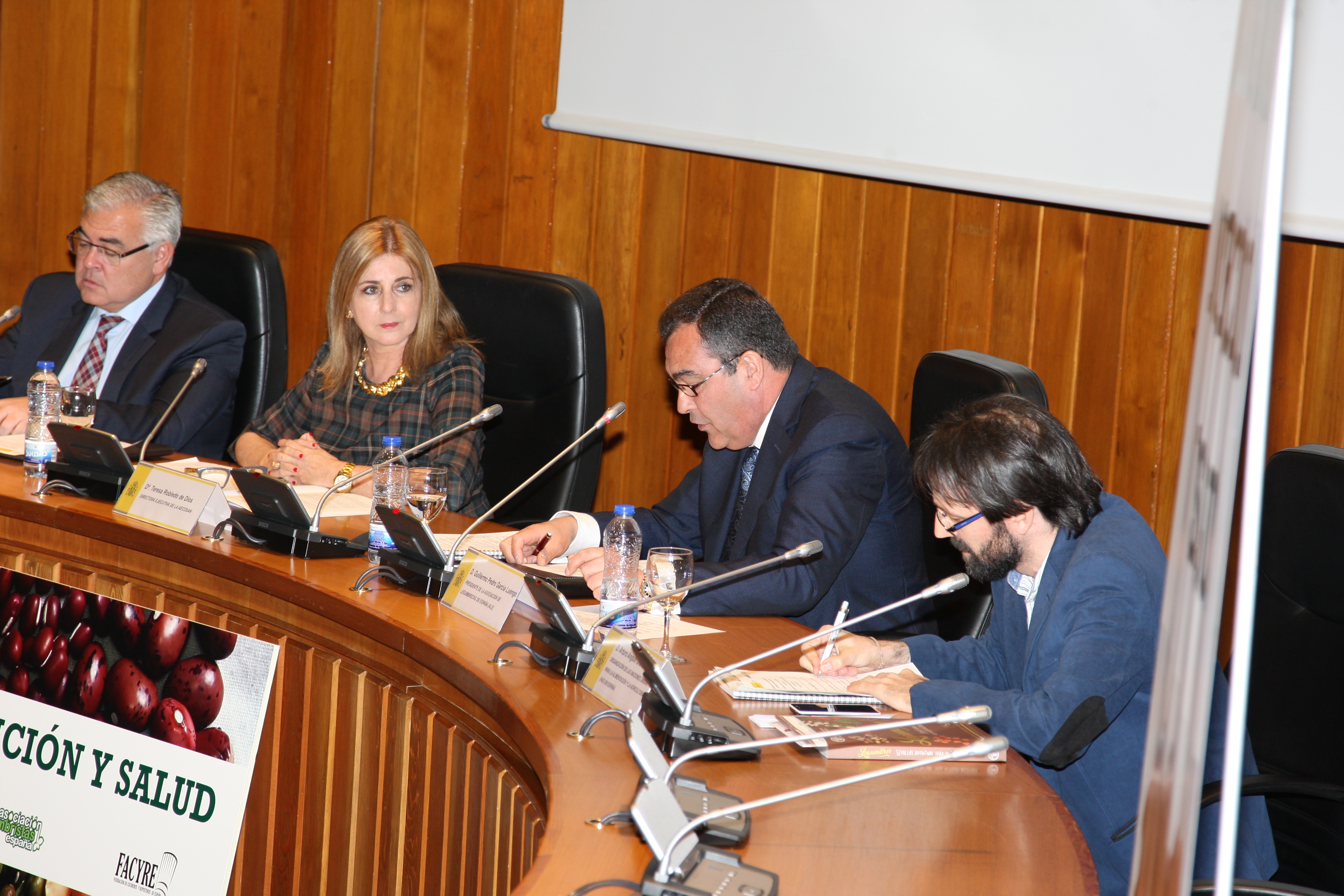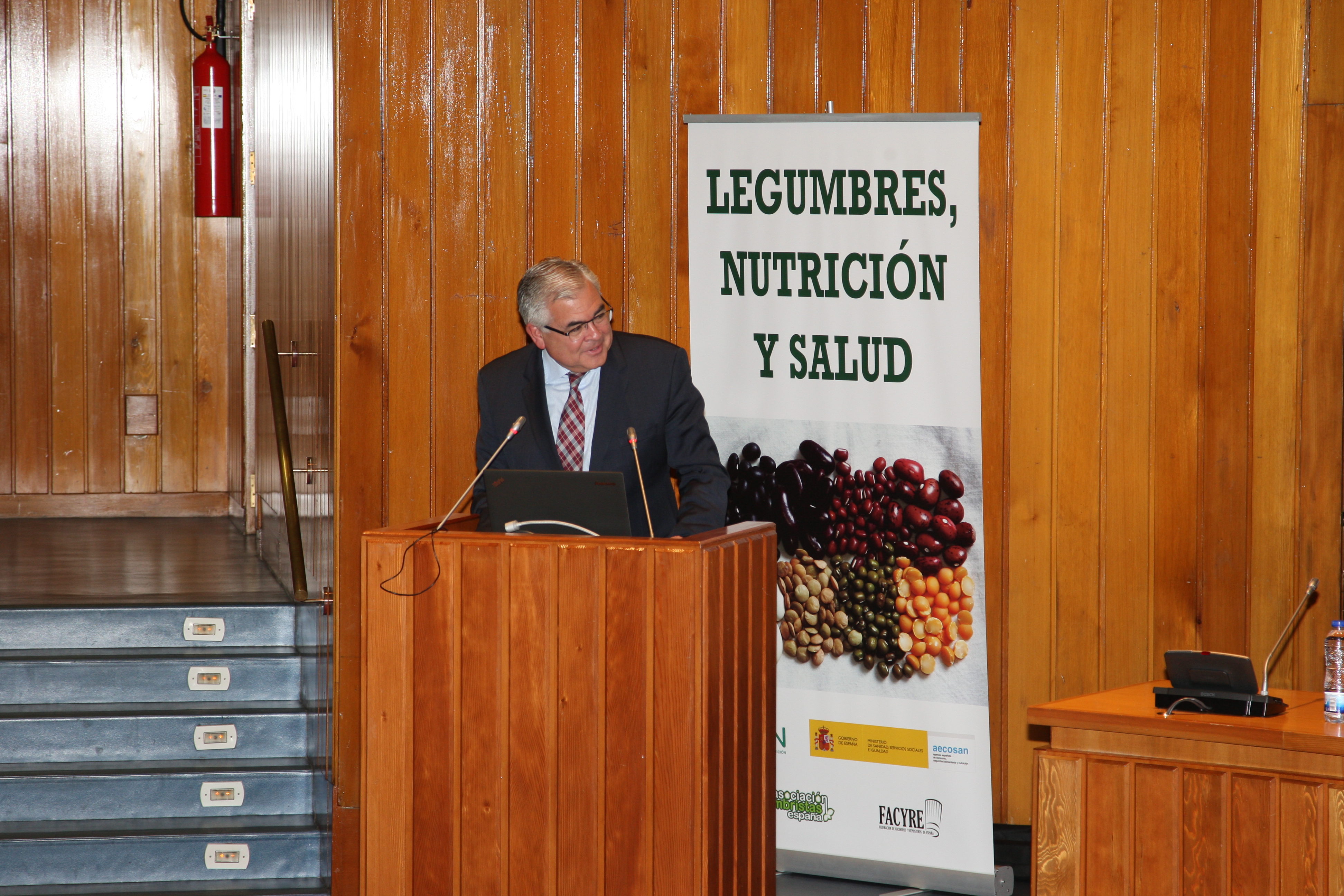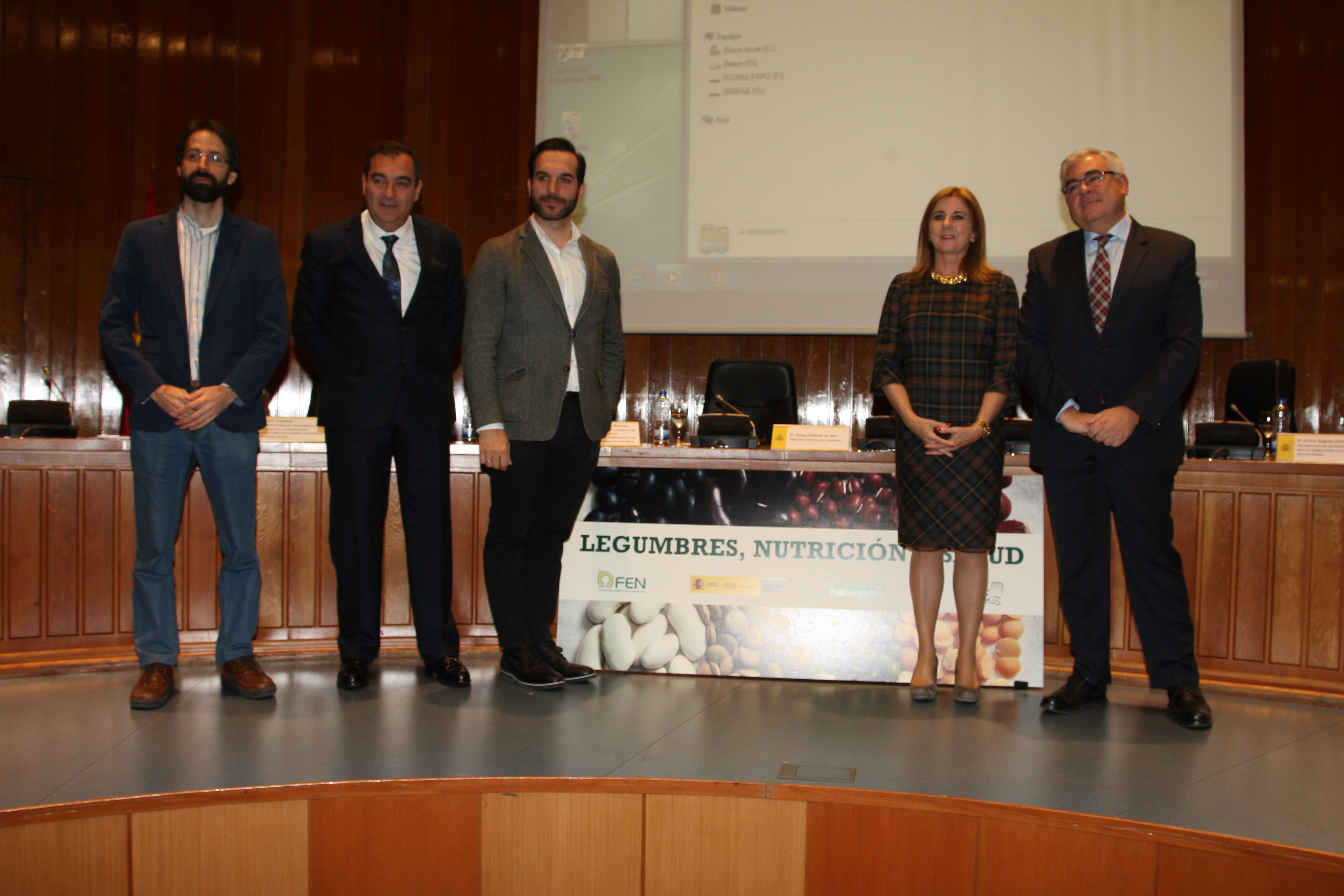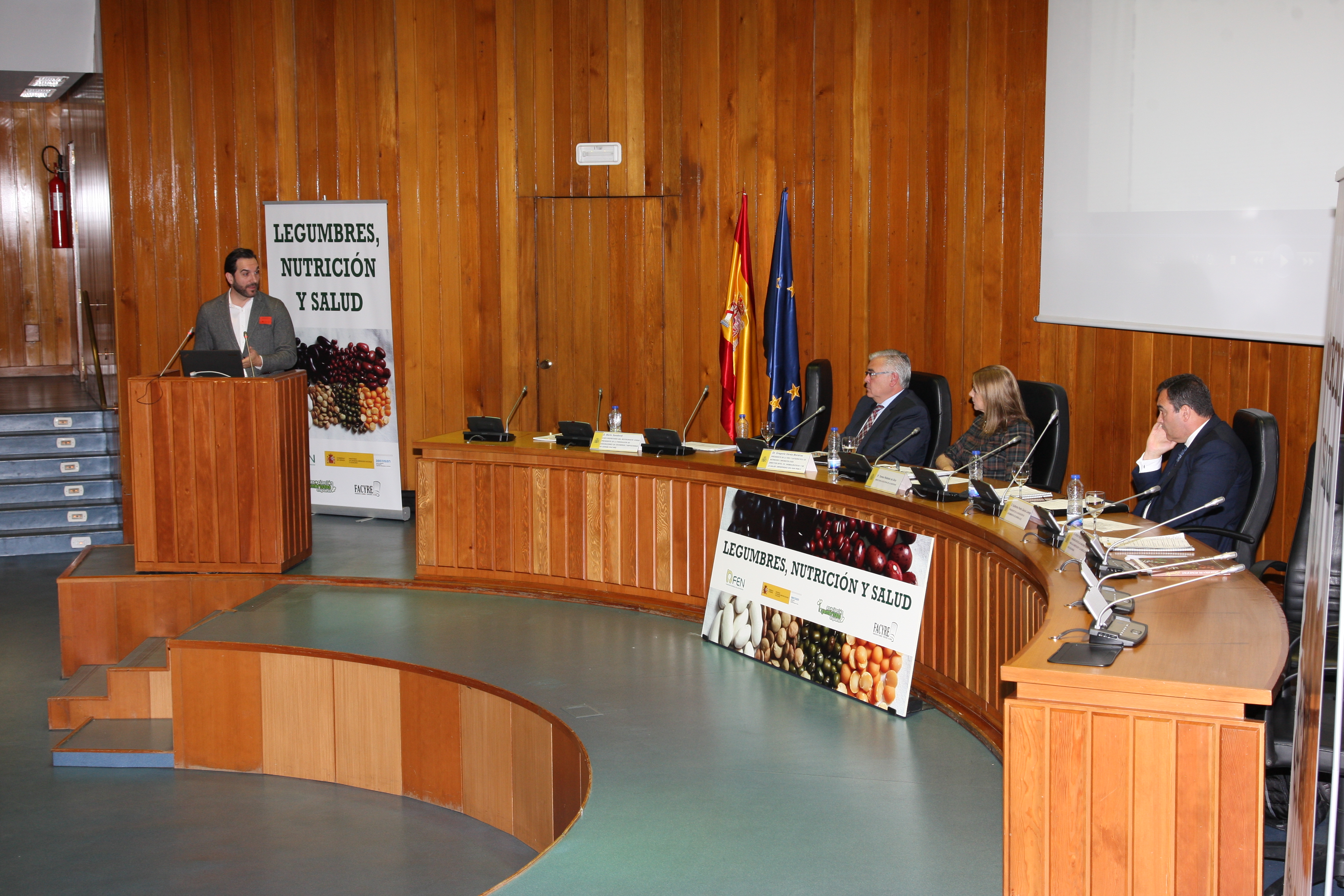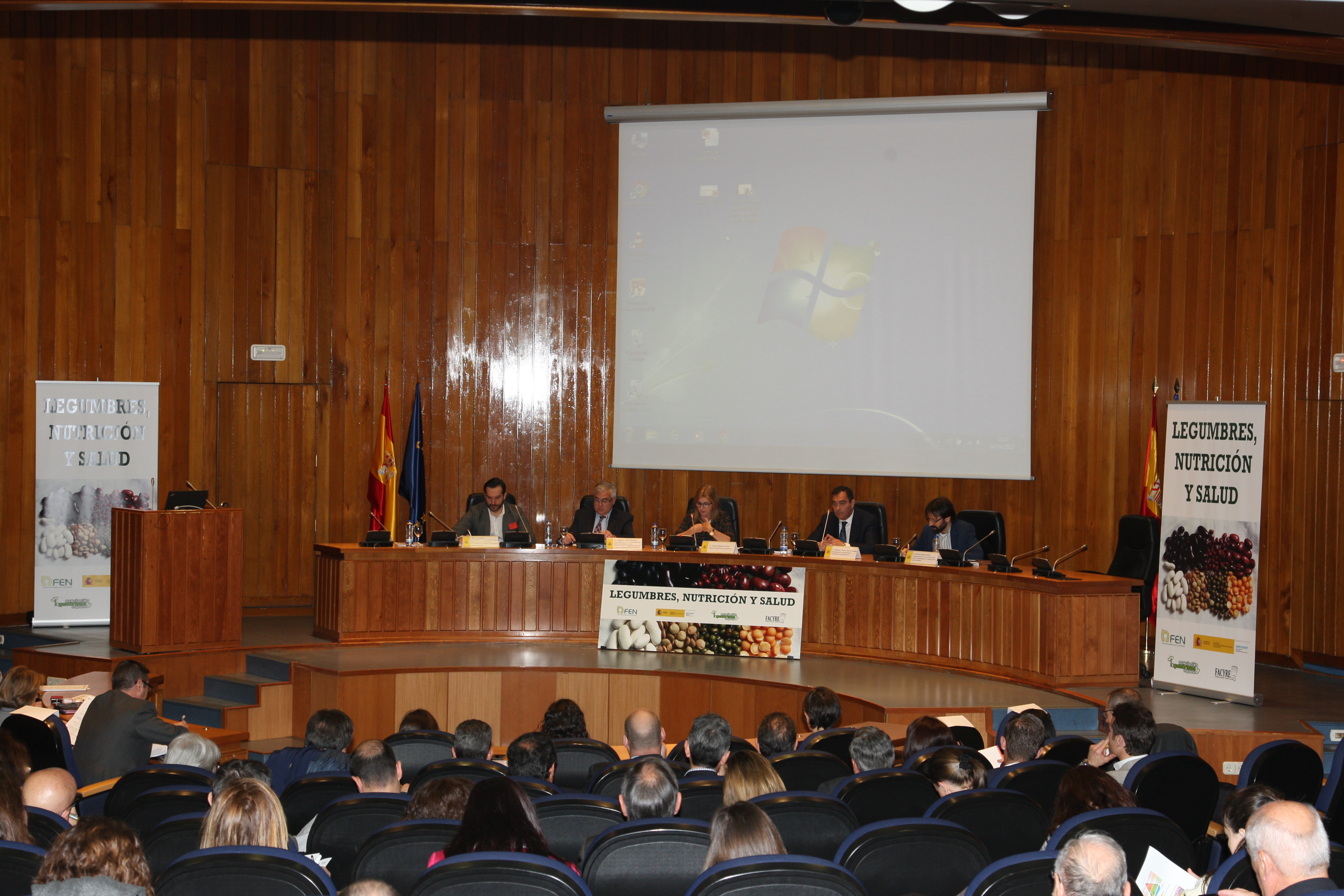Presentation of the “Informe sobre Legumbres, Nutrición y Salud” (Report on Pulses, Nutrition and Health drafted by the Spanish Nutrition Foundation (FEN)
Post: Nutrición
Date: 04 abril 2017
Section: Nutrición
Spanish Agency for Consumer Affairs, Food Safety and Nutrition
The report was presented this morning in a ceremony held at the conference hall of the Ministry of Health, Social Services and Equality.
Pulses are one of the most complete food products from a nutritional point of view, while also forming an essential part of the Mediterranean Diet thanks to their highly beneficial properties for health, the fact that they are economically accessible and that they contribute to food safety and environmental sustainability. Nevertheless, this food group is one of the most neglected in today's diet and has gradually been more and more absent from our tables. Specifically, since the 60s to date, the consumption of 41 g per person per day has been reduced to 10.6 g per person per day in 2015, almost 75%, according to the Food Consumption Panel (PCA) of the Ministry of Agriculture, Fisheries, Food and the Environment (MAPAMA).
At the opening ceremony, Teresa Robledo, Executive Director of AECOSAN, declared that, as we are all aware, an excess energy intake, a diet poor in fruit, vegetables, fibre, pulses and a diet rich in salt, saturated fats and added sugars are eating habits which are all too often found in our society, far from the Mediterranean diet, as a paradigm of healthy eating.
The Mediterranean diet was declared an Intangible Cultural Heritage by UNESCO, and there is increasing scientific evidence of its role in improving health. According to the PREDIMED study, conducted in Spain and which received the NAOS Strategy Award 2014, the Mediterranean diet significantly contributes to the prevention of cardiovascular diseases. The Mediterranean diet includes a series of guidelines, including for example, the frequent consumption of fruit and vegetables, and also of a food product which is characteristic of our environment, pulses.
During her speech, the Executive Director highlighted that pulses are part of Spanish traditional eating habits, which should not be lost and which have formed an essential part of numerous recipes in Spanish cooking for a long time. In nutritional terms, pulses have a number of highly valuable properties. They contain long-chain carbohydrates and have a high fibre content. In addition, they are an excellent source of vegetable proteins and do not have a high fat content. The fats they do contain are essentially polyunsaturated fatty acids.
The Report was presented by Gregorio Varela, Professor of Nutrition and Nutritional Science at the CEU San Pablo University and President of the Spanish Nutrition Foundation (FEN).
Also participating at the event were Arturo Angulo, Alliances expert for the Food and Agriculture Organisation of the United Nations (FAO) in Spain; Guillermo Pedro García Luengo, President of the Association of Pulse Producers in Spain (ALE) and Mario Sandoval, chef at the Coque Restaurant and President of the Spanish Federation of Chefs and Pastry Chefs (FACYRE) who also highlighted the gastronomic benefits of pulses.
All the speakers at the event highlighted the importance to health of this food group and encouraged the population to increase its consumption.
